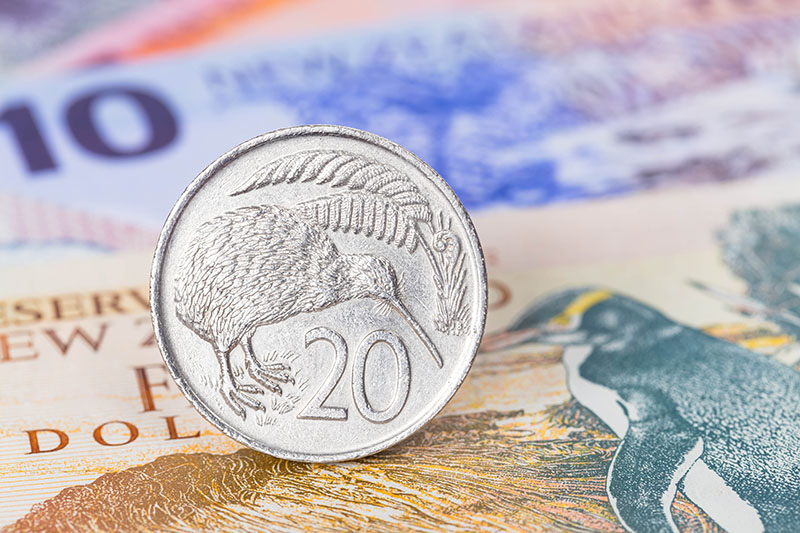By Cecile Lefort
SYDNEY, Feb 9 (Reuters) - The New Zealand dollar skidded lower on Thursday after the country's central bank dashed bulls' hopes that a rate hike would happen sooner rather than later, also pressuring its Australian cousin.
The New Zealand dollar NZD=D4 dropped to $0.7225, from $0.7300 the previous session and away from a three-month peak of $0.7375 touched earlier this week. Support was found at $0.7180.
The Kiwi has shed more than 1 percent this week and if sustained, it would represent the first weekly loss this year.
The Reserve Bank of New Zealand (RBNZ) kept rates at a record low of 1.75 percent on Thursday, as expected, and said that any tightening in policy might be at least two years away. market had been pricing in a move around late 2017.
"The RBNZ's statement reminded market participants that rate hikes are some way off," said Nick Tuffley, chief economist at ASB. "The market has moved from having a rate hike largely priced in by the end of the year, to a 50 percent chance."
New Zealand government bonds 0#NZTSY= gained, with yields as much as 8 basis points lower.
The kiwi fell against its Aussie cousin which rose to NZ$1.0550 AUDNZD=R . A break above NZ$1.0572 would be the highest since November.
The euro also received a fillip to touch NZ$1.4785 EURNZD=R , away from a two-year low hit earlier this week.
With all that selling in the kiwi, the Australian dollar fell in sympathy AUD=D4 to be down 0.3 percent against its U.S. peer at $0.7621.
The Aussie has slipped around 1 percent so far this week, after repeatedly failing to breach a key chart resistance level at 77 cents. Support was found near $0.7605.
Still, it remained within reach of a three-month peak of $0.7696 touched last week after Australia posted its biggest-ever trade surplus.
The euro regained some ground to A$1.4018 EURNZD=R , having fallen on Wednesday as far as A$1.3925, the lowest since May 2015.
Australian government bond futures rose to two-month highs, with the three-year bond contract YTTc1 up 3 ticks at 98.090. The 10-year contract YTCc1 gained 6 ticks to 97.3350, while the 20-year contract YXXc1 added 6.5 ticks to 96.7000. (Editing by Randy Fabi)
